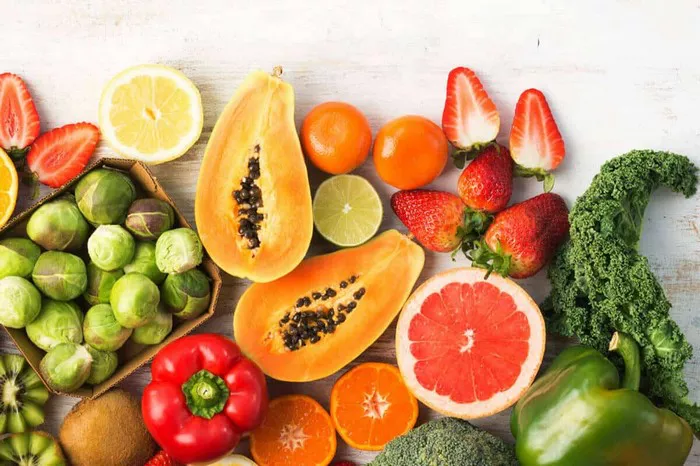Seeds are often hailed as nutritional powerhouses, packed with essential nutrients that support overall health and well-being. While they are known for their protein, fiber, and healthy fats content, seeds also provide a wealth of vitamins vital for various bodily functions. In this comprehensive guide, we delve into the vitamins provided by seeds, exploring their roles, sources, and importance in maintaining optimal health.
Understanding the Importance of Vitamins
Vitamins are organic compounds that play crucial roles in numerous physiological processes, including metabolism, immunity, and growth. While the body requires vitamins in relatively small amounts, they are essential for maintaining overall health and preventing deficiency-related diseases. There are 13 essential vitamins, each with its own unique functions and dietary sources.
The Role of Seeds in Vitamin Provision
Seeds serve as a rich source of vitamins, offering a diverse array of nutrients that contribute to overall health and well-being. Depending on the type of seed, vitamins may be present in varying quantities and proportions. Incorporating a variety of seeds into your diet can help ensure adequate intake of essential vitamins and support optimal health.
Nutritional Powerhouses: A Closer Look at Vitamins Provided by Seeds
Let’s explore the vitamins provided by seeds in more detail, highlighting their roles, sources, and importance for health:
1. Vitamin E:
Vitamin E is a potent antioxidant that helps protect cells from oxidative damage caused by free radicals. It plays a crucial role in immune function, skin health, and neurological function. Seeds such as sunflower seeds, almonds, and pumpkin seeds are excellent sources of vitamin E, providing tocopherols and tocotrienols that contribute to overall antioxidant defense.
2. B Vitamins:
The B vitamins, including B1 (thiamine), B2 (riboflavin), B3 (niacin), B5 (pantothenic acid), B6 (pyridoxine), B7 (biotin), B9 (folate), and B12 (cobalamin), are essential for energy metabolism, nervous system function, and red blood cell production. Seeds such as sunflower seeds, flaxseeds, chia seeds, and sesame seeds are rich sources of various B vitamins, contributing to overall energy production and vitality.
3. Vitamin K:
Vitamin K is necessary for blood clotting, bone health, and cardiovascular function. It also plays a role in regulating calcium metabolism and supporting cognitive function. Seeds such as pumpkin seeds, sunflower seeds, and flaxseeds are excellent sources of vitamin K, providing menaquinone forms (K2) that contribute to overall bone health and cardiovascular function.
4. Vitamin A:
Vitamin A is essential for vision, immune function, and skin health. It also plays a role in cell differentiation and growth. While seeds are not as rich in vitamin A as fruits and vegetables, certain seeds such as pumpkin seeds and hemp seeds contain carotenoids, precursors to vitamin A, which contribute to overall eye health and immune function.
5. Vitamin C:
Vitamin C is a powerful antioxidant that supports immune function, collagen synthesis, and wound healing. While seeds are not significant sources of vitamin C compared to fruits and vegetables, certain seeds such as sunflower seeds and pumpkin seeds contain small amounts of vitamin C, contributing to overall antioxidant defense and immune support.
6. Vitamin D:
Vitamin D is essential for bone health, immune function, and calcium metabolism. While seeds are not significant sources of vitamin D compared to fatty fish and fortified foods, certain seeds such as sunflower seeds and chia seeds contain small amounts of vitamin D precursors, contributing to overall bone health and immune function.
7. Vitamin B17 (Amygdalin):
Vitamin B17, also known as amygdalin or laetrile, is a controversial compound found in certain seeds, including apricot kernels and bitter almonds. While not officially recognized as a vitamin by mainstream medical authorities, some proponents claim that vitamin B17 has anti-cancer properties. However, its safety and efficacy for cancer treatment remain highly debated, and its consumption should be approached with caution.
Incorporating Seeds into Your Diet: Tips for Optimal Nutrition
To reap the nutritional benefits of seeds and maximize your intake of essential vitamins, consider incorporating a variety of seeds into your daily diet. Here are some tips for incorporating seeds into your meals and snacks:
1. Sprinkle seeds over salads, yogurt, or oatmeal for added crunch and nutrition.
2. Blend seeds into smoothies or shakes for an extra boost of vitamins and minerals.
3. Use seeds as a topping for soups, stir-fries, or roasted vegetables for added flavor and texture.
4. Add ground seeds to baked goods such as muffins, bread, or pancakes for added nutrients and fiber.
5. Snack on seeds alone or mixed with dried fruits for a nutritious and satisfying treat.
Conclusion: Harnessing the Nutritional Power of Seeds
In conclusion, seeds are nutritional powerhouses that provide a wealth of vitamins essential for overall health and well-being. From vitamin E and B vitamins to vitamin K and beyond, seeds offer a diverse array of nutrients that support various physiological functions, including energy metabolism, immune function, and bone health.
By incorporating a variety of seeds into your diet and embracing their nutritional benefits, you can optimize your intake of essential vitamins and support your body’s overall health and vitality. Whether sprinkled over salads, blended into smoothies, or enjoyed as a snack on their own, seeds offer a convenient and delicious way to boost your nutritional intake and enhance your well-being.
[inline_related_posts title=”You Might Be Interested In” title_align=”left” style=”list” number=”6″ align=”none” ids=”7252,7126,7123″ by=”categories” orderby=”rand” order=”DESC” hide_thumb=”no” thumb_right=”no” views=”no” date=”yes” grid_columns=”2″ post_type=”” tax=””]































